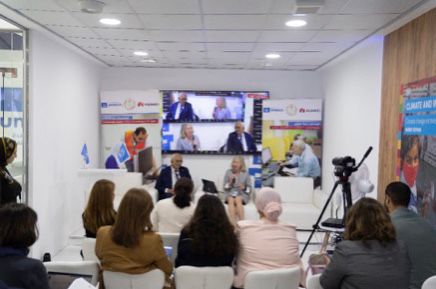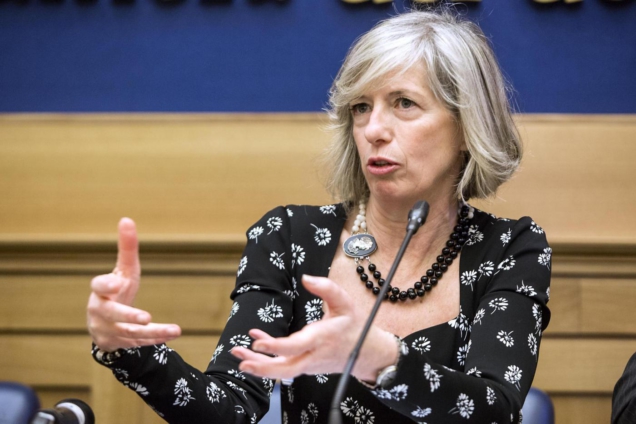UNESCO Assistant Director-General for Education Stefania Giannini has said digital technologies, geared toward inclusion and equity, could transform the future of school systems and learning.
“Harnessing technology and changing education models is imperative,” Giannini said as she addressed a side event about the UNESCO-Huawei “Technology-enabled Open Schools for All” project at the COP27 climate change conference in Egypt.
Giannini said the partnered project “can help countries to rethink and build a new generation of schools and learners”, as young people were increasingly faced with the challenges and risks caused by climate change.
The event, dedicated to a partnership developed by the UNESCO Education sector with Huawei and the Ministries of Education of Egypt, Ethiopia and Ghana, also presented preliminary results of the open schools in the three African countries.

“Aiming to leave no one behind in the digital world, enabling equity and quality in education is one of four focused domains in Huawei TECH4ALL digital inclusion initiative,” said Catherine Du, Head of Huawei's TECH4ALL program.
She added, “Moreover, we believe that ICT is a key enabler for a greener world with approaches like reducing carbon emission, renewable energy, circular economy and conserving nature with technology.”
Working with more than 20 different partners, TECH4ALL’s education program has helped connect schools, promote digital skills, and support STEAM curriculum to K12 students and teachers in more than 400 schools globally as well as unemployed young people and elders.
Since 2021, the Egyptian Ministry of Education and Technical Education, in cooperation with UNESCO and Huawei, have organized several meetings to prepare and review project documents.
“I would like to emphasize the critical need for collaborative efforts among all stakeholders to ensure not only equitable access to educational resources but also to fulfil social obligations towards students,” Dr Hegazy said.
In Egypt alone, the UNESCO-Huawei joint project aims to empower 950,000 teachers, principals, and supervisors to more effectively integrate ICT into their daily practice.
Ultimately, 23 million students at the basic education level in the country are expected to benefit from an enhanced and more equitable digital learning experience.
Huawei has operated in Africa for more than 20 years, helping connect more than one billion people in more than 50 African nations, as part of the company’s overarching commitment to help bridge the digital divide and enrich people’s lives.
Latest Stories
-
Portugal vs Spain Nations League final preview
22 minutes -
Help protect oceans for sustainable future – Dr. Agyekumhene
27 minutes -
Trump-Musk row fuels ‘biggest crisis ever’ at Nasa
33 minutes -
Sir Sam Jonah’s blueprint: 10 keys to transform Ghanaian youth into nation builders
40 minutes -
Sir Sam Jonah calls for urgent STEM prioritisation to develop Ghana
1 hour -
Gyakie makes Forbes Africa’s 30 Under 30 list for 2025
1 hour -
‘Write for World’ graduates 30 females in entrepreneurship and fashion design programme
4 hours -
Police escort vehicle somersaults in near-fatal crash near Binduri
4 hours -
Sir Sam Jonah commends Mahama as he backs youth leadership to transform Ghana
4 hours -
“I was a labourer in the Obuasi mines” – Sir Sam Jonah shares humble beginning
5 hours -
Embrace the ‘F word’; Failure is the path to success – Sir Sam Jonah
5 hours -
Build relationships that matter – Sir Sam Jonah advises Ghanaian youth
6 hours -
Africa doesn’t need more people with power, money or fame but character – Sir Sam Jonah
8 hours -
Celebrating Melvina Amoafo: A Legacy of excellence in Ghana’s capital market
9 hours -
Restoring Meritocracy: A path to effective governance in Ghana
9 hours

